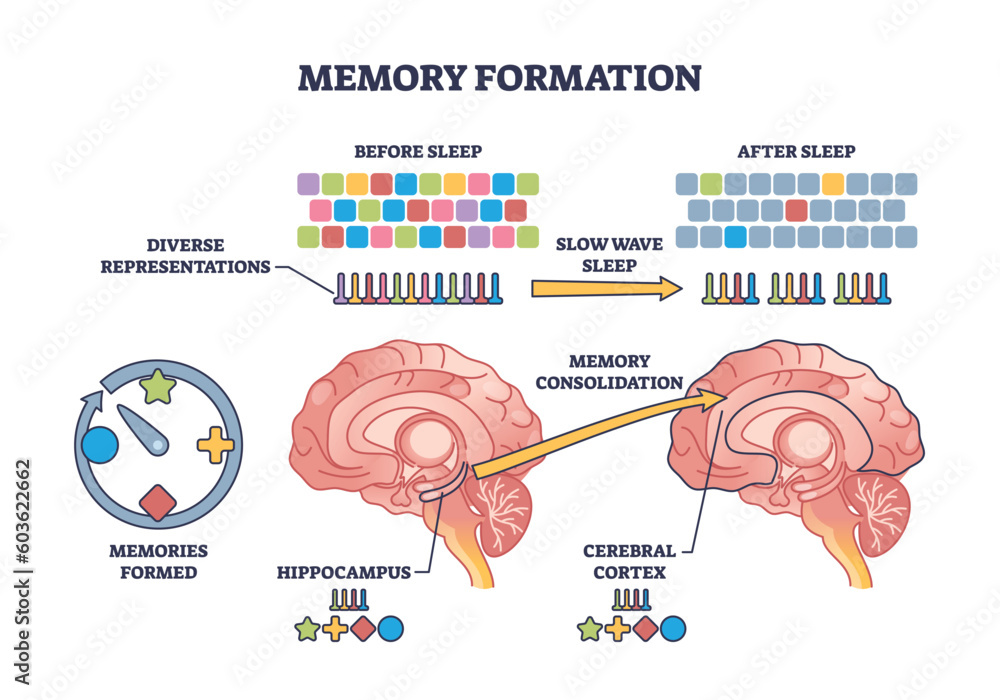Youth well-being stands as a critical factor in shaping the future of society, yet a recent global study on well-being has unveiled troubling insights into its current state, particularly in the United States. According to research led by Tyler VanderWeele, it’s apparent that we are not investing adequately in our youth, which raises significant concerns about mental health trends and the overall flourishing of younger generations. The study, encompassing data from diverse nations, highlights the necessity of fostering strong social connections and youth, as these elements play a pivotal role in enhancing well-being. Amidst rising economic development, the lack of emphasis on nurturing human flourishing among youth is alarming, calling for a reevaluation of priorities regarding youth investment. Understanding the importance of youth well-being is paramount for ensuring a prosperous and resilient future.
The well-being of young people is a foundational aspect of societal prosperity, yet it often gets overshadowed by economic metrics and developmental goals. Recent evaluations of youth health indicate that more profound attention must be directed towards cultivating environments that promote healthy relationships and psychological resilience. With a growing focus on human growth, it becomes essential to acknowledge how the interplay of financial stability, social ties, and mental health can greatly influence young individuals’ experiences. Therefore, the exploration of young people’s existing conditions and potential improvements should become a broader conversation regarding the collective investments needed to foster human flourishing. After all, nurturing the youth effectively today translates to a thriving society tomorrow.
The Importance of Youth Investment in Flourishing
The global study on well-being highlights a crucial aspect of societal progress: the need for substantial investment in youth. As pointed out by researchers like Tyler VanderWeele, youth investment encompasses not only financial resources but also emotional, educational, and social support systems. Without adequate investment, we risk compounding existing mental health issues among young people, leading to detrimental effects on their ability to flourish. Evidence suggests that countries that prioritize holistic development for youth, focusing on education, mental health services, and social connections, tend to achieve better outcomes in overall well-being.
Moreover, investing in youth means providing them with opportunities to develop meaningful relationships, achieve academic success, and engage in their communities. This foundation is essential for fostering human flourishing in the long term. A robust support system can help mitigate the current troubling trends observed in mental health among young people, as highlighted in the study. With proper guidance and resources, youth are more likely to navigate challenges effectively and contribute positively to society.
Youth Well-Being: Mental Health Trends and Social Connections
Recent findings reveal a concerning shift in mental health trends among youth, suggesting that today’s young people are experiencing levels of anxiety and depression that differ from previous generations. The Global Flourishing Study indicates a significant disconnect between the flourishing of youth and older demographics, raising alarms about the mental health crisis facing these young individuals. Social connections play a critical role in youth well-being, serving as a protective factor against mental health issues. Engaging with peers and trusted adults can enhance feelings of belonging and significance, which are vital for emotional resilience.
The study also found that regions with robust social support networks tend to report higher levels of youth flourishing. This correlation indicates the importance of fostering environments where youth can build meaningful relationships. As shown in several nations, especially those like Indonesia that prioritize community engagement, youth can thrive with consistent support. The importance of encouraging social connections cannot be overstated, as these relationships often provide the frameworks within which young people can explore and develop their identities while creating lasting bonds that contribute positively to their mental health and overall well-being.
Understanding Human Flourishing Through Cross-Cultural Perspectives
The Global Flourishing Study underscores that human flourishing cannot be universally defined without considering cultural contexts. Different countries exhibit unique societal norms, economic constraints, and familial structures that influence how well individuals, especially youth, flourish. For instance, the study’s findings indicate Indonesia’s unexpected ranking as one of the top countries for flourishing despite its middle-income status. This insight suggests that a focus on community values, relationships, and social connectedness can lead to higher levels of well-being, irrespective of economic prosperity.
Moreover, by analyzing diverse cultural perspectives, researchers can identify practices that promote flourishing and mental health across various demographics. Countries that provide strong familial and community support systems tend to report better youth outcomes. Thus, understanding how different cultural beliefs shape the experiences of youth provides a more comprehensive picture of human flourishing, reinforcing the notion that economic success alone does not guarantee overall well-being.
The Role of Financial Stability in Youth Flourishing
While financial stability is often considered a key indicator of well-being, the findings from the Global Flourishing Study suggest that it does not correlate directly with youth flourishing. The study revealed that nations with lower average incomes, such as Mexico and the Philippines, ranked high in relationships and happiness. This provides a critical understanding that financial resources, while important, are not the sole determinants of a fulfilling life. Young people in environments that emphasize strong social support systems and relational connections often report higher levels of contentment and purpose.
However, it is crucial to address financial barriers that can hinder youth from accessing resources necessary for their development. Youth investment should include strategies to ensure that financial stability does not overshadow the need for building social connections and community support. By striking a balance between financial solutions and relational wellness, society can create a more holistic approach to fostering youth well-being.
Longitudinal Studies and Their Impact on Understanding Youth
The longitudinal aspect of the Global Flourishing Study provides a unique opportunity to track changes in youth well-being over time. By continuously collecting data, researchers can identify trends and patterns in how various factors—such as relationships, financial situations, and mental health—affect youth flourishing. This ongoing research is essential in addressing the complexities present in different cultural contexts and economic conditions.
As researchers resurvey participants annually, they can also gauge the effectiveness of various interventions aimed at improving youth well-being. This aspect of the study is crucial for informing policy decisions and strategic investments in youth programs. Understanding how youth responses evolve within a changing world will ultimately contribute to more effective strategies for promoting human flourishing and mental health improvements.
The Interconnection Between Spiritual Well-Being and Youth
Spiritual well-being is a significant yet often overlooked aspect of the overall health and happiness of youth. The Global Flourishing Study discovered that regular participation in religious services corresponds with higher levels of adult flourishing, suggesting that the spiritual development of youth may similarly impact their well-being. When young people engage in spiritual practices, they often find a sense of community and purpose that fortifies their resilience against life’s challenges.
Encouraging youth to explore their spirituality can provide them with coping mechanisms and a stronger identity. As communities focus on holistic development, integrating spirituality into youth programs can help foster a balanced approach to mental health and flourishing. By acknowledging the role of spiritual wellness, we can better support youth in discovering meaning and connection in their lives.
Challenges and Opportunities in Youth Development
The findings from the Global Flourishing Study raise critical questions about the challenges facing youth today, particularly regarding mental health and the pressures of contemporary life. With increasing competition in academic and job markets, many young people report feeling overwhelmed and disconnected. This environment highlights the urgent need for society to provide supportive networks and resources that empower youth to navigate these challenges effectively.
However, within these challenges lie opportunities for growth and development. By fostering strong community connections and focusing on emotional well-being, we can create an environment that encourages youth to thrive. Schools, families, and local organizations must come together to establish supportive frameworks that prioritize youth well-being and facilitate flourishing, thus creating pathways for future generations to achieve their fullest potential.
Future Directions for Research on Youth Flourishing
The ongoing research stemming from the Global Flourishing Study paves the way for new inquiries into the complexities of youth well-being. Researchers are equipped to explore various dimensions of flourishing and how they interact with societal changes, emerging mental health trends, and youth experiences. This holistic approach promises to unveil critical insights into the evolving nature of what it means to flourish in an increasingly globalized world.
As findings continue to be analyzed and shared, there’s potential for developing interventions and policies that positively impact youth across diverse settings. By harnessing the expansive datasets collected, stakeholders can collaborate on innovative solutions that address the distinct needs of young people, ultimately fostering a culture wherein each individual can thrive and flourish experience.
Creating Supportive Ecosystems for Youth Well-Being
To foster youth well-being effectively, it is essential to create comprehensive ecosystems that support emotional, social, and mental health. This involves collaboration among various sectors, including education, healthcare, and community organizations. By addressing systemic barriers and integrating services, we can nurture environments where youth feel secure and valued, paving the way for their flourishing.
Implementing programs that prioritize connection and community engagement will enhance youth experiences. Efforts such as mentorship programs, peer support networks, and accessible mental health resources can significantly improve youth resilience and overall well-being. The collective responsibility of society in nurturing youth cannot be understated, as these investments lay the groundwork for a healthier future.
Frequently Asked Questions
How does the global study on well-being impact youth well-being investments?
The global study on well-being highlights critical gaps in youth well-being, emphasizing the need for increased investments in mental health and social support systems. As Tyler VanderWeele mentioned, it raises questions about our current level of investment in the well-being of youth, suggesting that we may need to prioritize funding and resources to address these challenges effectively.
What are the recent mental health trends affecting youth well-being?
Recent mental health trends indicate a concerning decline in youth well-being, particularly in the U.S., where flourishing levels among young people appear stagnant. This aligns with findings from the Global Flourishing Study, which underscores the complexities surrounding youth mental health in different cultural and economic contexts and points to a need for effective interventions.
Why are social connections important for youth well-being?
Social connections play a vital role in youth well-being, as evidenced by the Global Flourishing Study. Positive relationships in childhood significantly correlate with higher levels of flourishing in adulthood. Building strong social networks and supportive communities is crucial for enhancing youth mental health and fostering resilience.
What does the term ‘human flourishing’ mean in the context of youth well-being?
In the context of youth well-being, ‘human flourishing’ refers to the overall health, happiness, and fulfillment that young individuals experience in their lives. The Global Flourishing Study assesses various factors like health, relationships, and financial security that contribute to a sense of purpose and thriving, highlighting the complexity of well-being beyond mere financial stability.
How can we improve youth well-being based on findings from the global study on well-being?
Improving youth well-being, as highlighted by the global study, requires a multifaceted approach that includes enhancing mental health resources, fostering social connections, and addressing economic inequalities. By prioritizing these areas, communities can create environments that support flourishing and resilience among their youth.
What does ‘importance of youth investment’ refer to in discussions about well-being?
The ‘importance of youth investment’ refers to the necessary allocation of resources—financial, social, and educational—aimed at improving the well-being of young people. Insights from the Global Flourishing Study indicate that without adequate investment in youth, their long-term flourishing and mental health may be compromised, leading to broader societal challenges.
How does financial security relate to youth well-being and flourishing?
While financial security is often linked to well-being, the Global Flourishing Study suggests that it is not the sole determinant of youth flourishing. The findings indicate that emotional and social factors, such as relationships and community support, are equally important in promoting comprehensive well-being among youth.
What role does family background play in youth well-being?
Family background significantly influences youth well-being, with positive childhood experiences, such as healthy relationships and supportive environments, being predictors of greater flourishing in adulthood. The global study suggests that addressing childhood hardships can mitigate negative impacts on youth mental health and foster resilience.
| Key Points | Details |
|---|---|
| Study Focus | Investigates well-being and flourishing among youth globally. |
| Key Findings | Middle-income countries rank highest in youth well-being, challenging perceptions that wealth equals happiness. |
| Data Collection | Surveyed 203,000 individuals across 22 countries, assessing factors like health, happiness, relationships, and financial security. |
| Concern for U.S. Youth | Study indicates a significant drop in well-being for youth, as compared to older adults. |
| Cultural Insights | Findings suggest that social connections and spiritual well-being are crucial for flourishing, irrespective of wealth. |
Summary
Youth well-being is increasingly under scrutiny, as recent studies reveal troubling trends among young populations. The Global Flourishing Study highlights that factors such as strong relationships and community involvement, rather than financial success, play a vital role in the well-being of youth. As this study shows, it’s critical to invest in the social and emotional health of young individuals to ensure a brighter future for societies worldwide.






